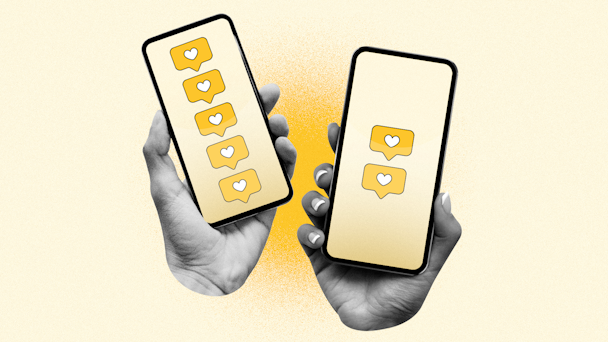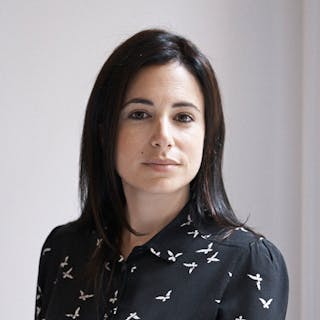How Bumble is empowering women across APAC to challenge the stigmas of online dating
Dating app Bumble is on a mission to shift cultural norms around gender roles and break the stigmas around online dating in Asia.

Bumble is on a mission to empower APAC's women / Bumble/Persuasion Communications
The dating app, which has a presence in India, Australia, New Zealand and Southeast Asia, including Singapore and the Philippines, wants to normalise the idea of making romantic connections through an app, which still carries a stigma in several Asian cultures.
Lucille McCart, communications director for Bumble APAC, told The Drum, Bumble’s audiences differ significantly across the region as priorities such as religion are much more important in markets such as Singapore and the Philippines, compared to more westernised markets such as Australia and New Zealand.
McCart says these unique market attributes help underscore the brand's strategy to its overarching mission.
“Shifting cultural norms around dating and gender roles is an enormous task, so a lot of our campaign strategies focus on normalising making connections online while also challenging some of the more traditional ideas around relationships and meeting people. The goal being to drive brand awareness for Bumble through localised and culturally relevant storytelling,” says McCart.
Bumble launched in 2014 as a women-first dating platform. Founder and CEO Whitney Wolfe Herd wanted to create a platform where women made the first move in a bid to create a more respectful relationships app. This positioning – along with the brand’s mission, is Bumble’s key differentiator in the competitive dating app market, according to McCart.
“What sets us apart is our mission, and our desire to end misogyny around the world,” says McCart.
“We also want to break the stigma that still exists in some Asian cultures around finding a romantic partner online. When dating apps came on the market just a few years ago, they revolutionised how people can meet each other, but there is still work to be done to normalise the concept of using an app to meet people. At Bumble, we have done this through a rigorous focus on safety through the development of product features like photo verification, private detector, video chat and more.
“But we still have a long way to go in challenging gender roles. A study we commissioned earlier this year, titled the Romance Gap, found that around the world, there is still pressure on men to be responsible for making the big moves when it comes to forming and progressing romantic relationships.
“In Singapore, 87% of people surveyed believed that men should take the lead and only 7% said that this is what is expected of women. Things are slowly changing in this regard, and Bumble is here to advocate for further progress,” says McCart.
Advertisement
Bumble’s work in this area is reflected in its marketing activities in different markets.
Bumble’s ‘It Starts With Hello' campaign for the Philippines and Singapore was built off the insight that Gen Z and Millennial women can be overwhelmed by starting conversations on Bumble, so the campaign aimed to empower them through four films.
“The campaign encourages them to overcome their hesitation by making it as simple as typing “hello”. It comes to life via four short-form content pieces that capture what breaking barriers and making moves can look like for Southeast Asian women, whether it is inviting someone on a date to the Mercato (night market) or to a Karoke session.”
The work in Southeast Asia varies dramatically from Australia’s ‘Girls will be Girls” campaign, which takes a bolder approach to Bumble’s women-first positioning. The campaign was was built off the ‘boys will be boys’ saying and re-imagined what it would look like if women were afforded the same freedom as men.
Advertisement
“The campaign aimed to reflect the lived experiences of Australian women and their dating journeys, and reflected on the power that comes from making the first move, while also serving to remind audiences that dating is meant to be fun,” says McCart.
Bumble has taken a different approach in India, where the brand has produced a content series called Dating These Nights. The series, now in its third season, takes a chat-show-style approach and sees celebrities sit down together to discuss dating topics.
Suggested newsletters for you
“The series delves into deeper and more meaningful conversations around topics that are considered taboo but need to be discussed more openly. The content reflects evolving dating cultures in India and showcases our brand values in a locally relevant way.”
It’s not just the different markets; overall, people on Bumble have changed significantly in the wake of the pandemic and the impact of turbulent global events.
“2022 was a formative year with the return of travel, the drastic increase in our social lives and commitments, and a number of turbulent global events. However, for some people, this post-pandemic shift left them feeling out of control and exhausted. In response to this,
McCart says while 2022 was “a formative year”, as people begin to gain more control over their lives, they are changing their behaviours.
“We’ve seen that people on Bumble are now prioritising identifying and clearly articulating their boundaries. These boundaries can be emotional, like being upfront about what they want or recognising red and green flags; physical, like ensuring they don’t over commit themselves; or financial, encouraging candid conversations about previously taboo topics.
"All of these shifts are changing the ways that people are thinking about what they are looking for, and how they better balance our relationships, work, and life. As we head into the new year, we are encouraged by the many ways single people are challenging the status quo and taking control of defining what a healthy relationship means for them.”
“At Bumble, our mission is to create a world where all relationships are healthy and equitable, with our core values of kindness, respect and equality at the centre of everything we do. At every level of our business, our team is informed and led by these values and our goal to empower women on their dating journeys.
“We are aiming to transform the way people date, and we are able to connect with audiences by remaining true to this mission and these values in all our marketing efforts - such that we have been able to encourage women around the world to make the first move on Bumble nearly 2 billion times," says McCart.

